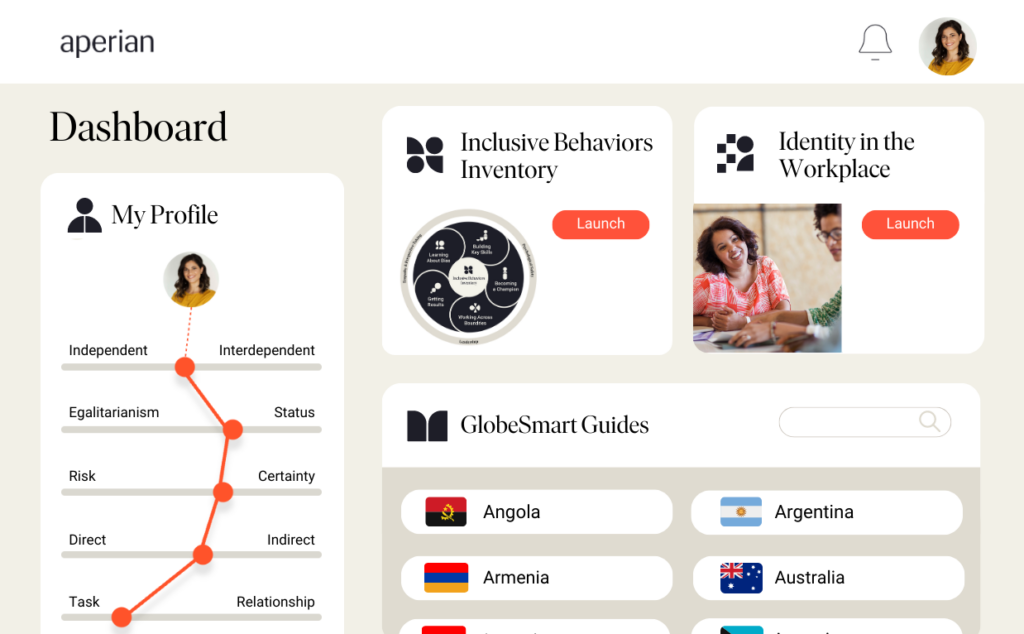
Access a full calendar of facilitated live training experiences on the topics that will transform the way your teams work.



We support organizations global in reach, mindset, or ambition with meaningful and memorable learning experiences that advance inclusion and accelerate growth.
Our platform is expansive and modular. Choose the pace and focus that meets the needs of your leaders, managers, and individual contributors, and track progress towards your organization’s goals.
We’ll partner with you to build a learning journey that works for your leaders, managers, and individual contributors.




Learning in Aperian starts with discovering more about yourself, with personalized tips for collaborating with others.


Explore extensive information about 100+ cultures around the world, including the locally relevant DEI factors, how to build relationships, and more.


Identify personal and organizational inclusion gaps and receive next steps to evolve behaviors.


Our self-paced, interactive learning experiences help solidify key concepts and provide advice for reference at any time.


Employees connect with concepts and each other through globally consistent yet locally relevant training experiences.


With targeted support both pre- and post-assignment, our experts equip assignees and their families with the tools they need for a meaningful international experience.
Research shows that we learn best with reinforcement, so Aperian provides holistic experiences that help solidify concepts over time. They are actionable, relevant, and enable real behavior change in all areas of work and life.

When people start to show up with empathy and insight, teams can bridge differences and create inclusive environments that advance innovation, fuel growth, and inspire change far beyond the workplace.
 Walton Price, Global Head of Workforce Diversity, Equity & Inclusion, Collins Aerospace
Walton Price, Global Head of Workforce Diversity, Equity & Inclusion, Collins Aerospace“With ~67,000 employees across 26 countries, Aperian is an essential platform for us. Their experts and advisors help us continue to be intentional about our global approach to diversity, equity and inclusion.”

Access a full calendar of facilitated live training experiences on the topics that will transform the way your teams work.
This will close in 0 seconds